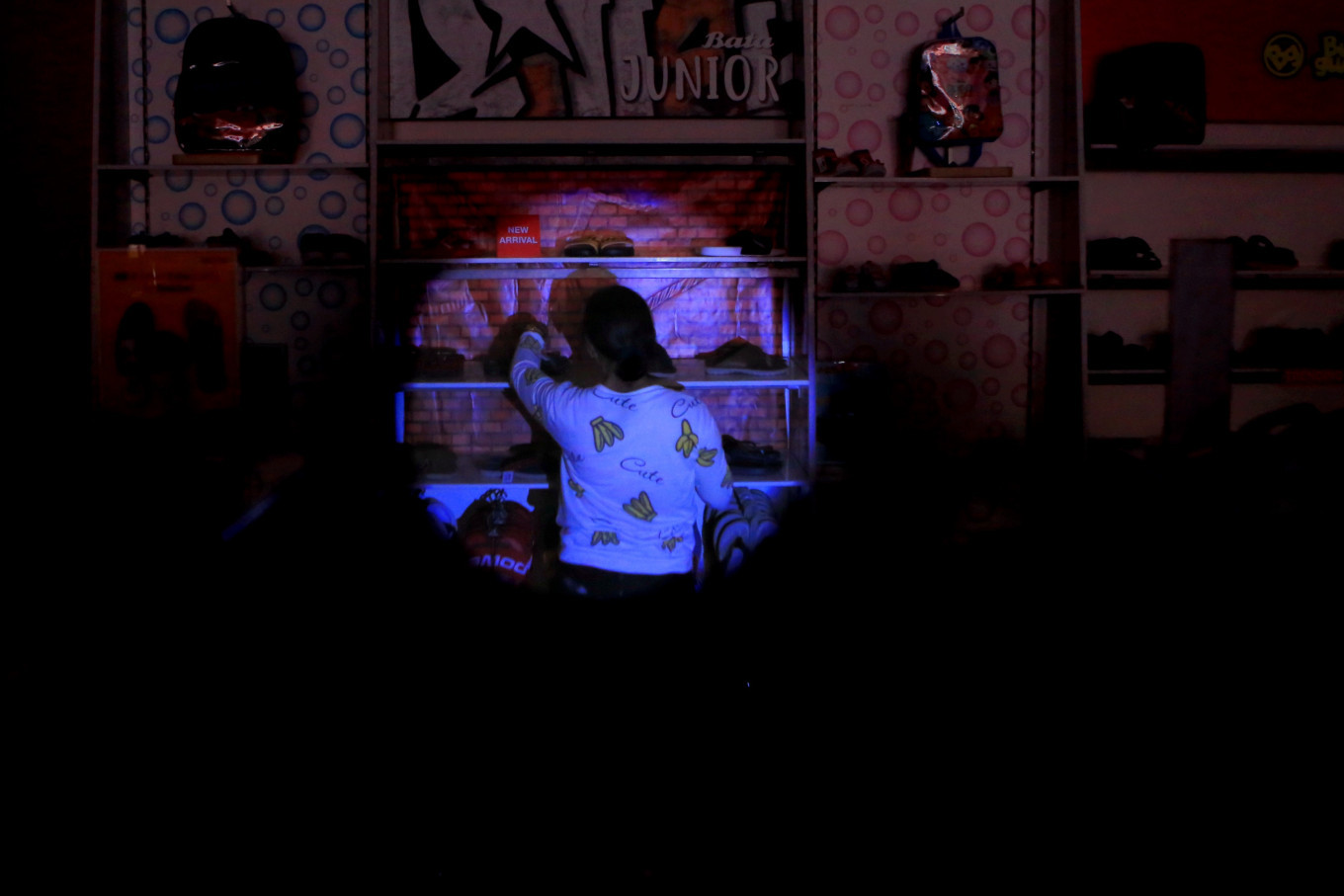Popular Reads
Top Results
Can't find what you're looking for?
View all search resultsPopular Reads
Top Results
Can't find what you're looking for?
View all search resultsPowerless and paralyzed
True, electricity is a basic need and should be controlled by the government for the benefit of the majority of people. But controlling should not mean a monopoly by a state company because monopoly is always inimical to good governance and the economic viability of production.
Change text size
Gift Premium Articles
to Anyone
T
he massive power failure in Jakarta and most of the western part of Java and parts of Central Java that started on Sunday at noon and continued into Monday is emblematic of the crumbling infrastructure, notably electricity, in the country and too much government intervention in the state electricity company PLN, which has a power monopoly.
Though the power outage was not as massive as the one in mid-August 2005, which hit the whole of Java and Bali, we did not expect such a huge blackout could have happened as power development has been a priority of President Joko “Jokowi” Widodo’s working programs since 2015.
It is yet unclear if a 6.9-magnitude earthquake on Friday night off the coast of West Java had anything to do with the power outage. But PLN admitted the cause of Sunday’s big power failure was a technical fault at its transmission circuits on the Ungaran to Pemalang power line in Central Java, causing voltage drops within the power networks in Jakarta and western part of Java. This was similar to the technical fault at its Java-Bali 500-kilovolt overhead transmission lines in 2005.
As demand for electricity has grown, the PLN transmission system seems to have cracked under the weight of ever-heavier power loads. The problem is that we need a new grid. The problem though is that PLN, suffering under too heavy intervention by the government as regard to its power rates, has not been able to increase investment to improve its overloaded transmission lines and grid.
The big power failure certainly has caused big losses as Jakarta and its surrounding towns and West Java hosts almost 60 percent of the country’s manufacturing plants and are home to more than 100 million people. Moreover, public transportation services were severely disrupted and digital economic activities paralyzed.
Given the high frequency of big power failures over the past 15 years — major outages in 2002, 2005, 2007 and 2008 — it is now imperative for the government and the House of Representatives to start reviewing PLN’s monopoly to create healthy competition within the power sector.
True, electricity is a basic need and should be controlled by the government for the benefit of the majority of people. But controlling should not mean a monopoly by a state company because monopoly is always inimical to good governance and the economic viability of production. There should be a middle way that could be arranged whereby the electricity industry is open to private investors to create fair competition both in production and transmission. Just look at the telecommunications industry, which, like power, is equally vital to our increasingly digitalized world and economy. For many decades the telecom industry was monopolized by two state companies, but after the 1998 economic crisis it has been opened to private investors.
But not a single investor will likely be interested in the power sector, unless the government restores legal certainty for investment in the industry sector after the annulment by the Constitutional Court of Law No. 20/2002 on electricity.










